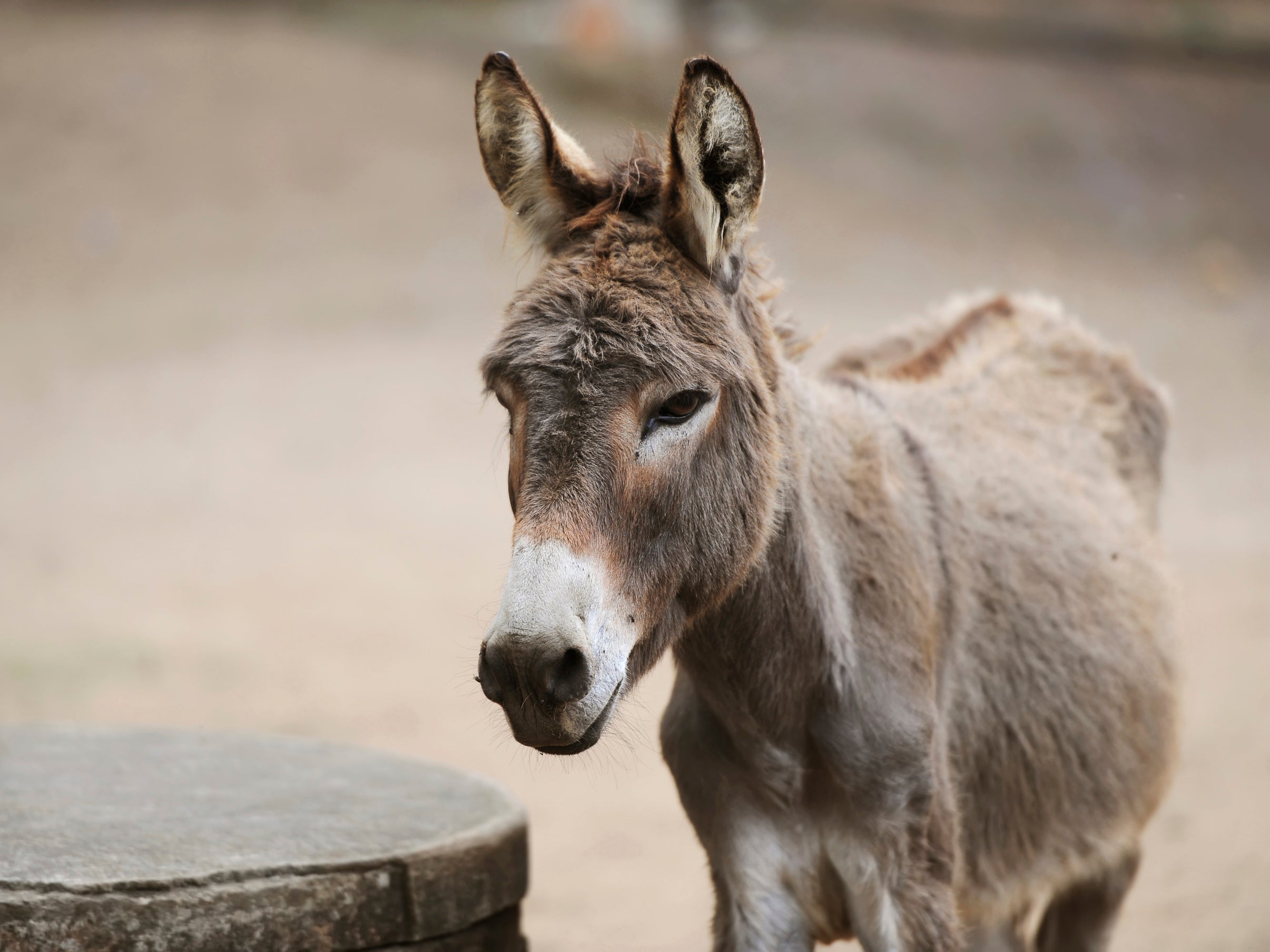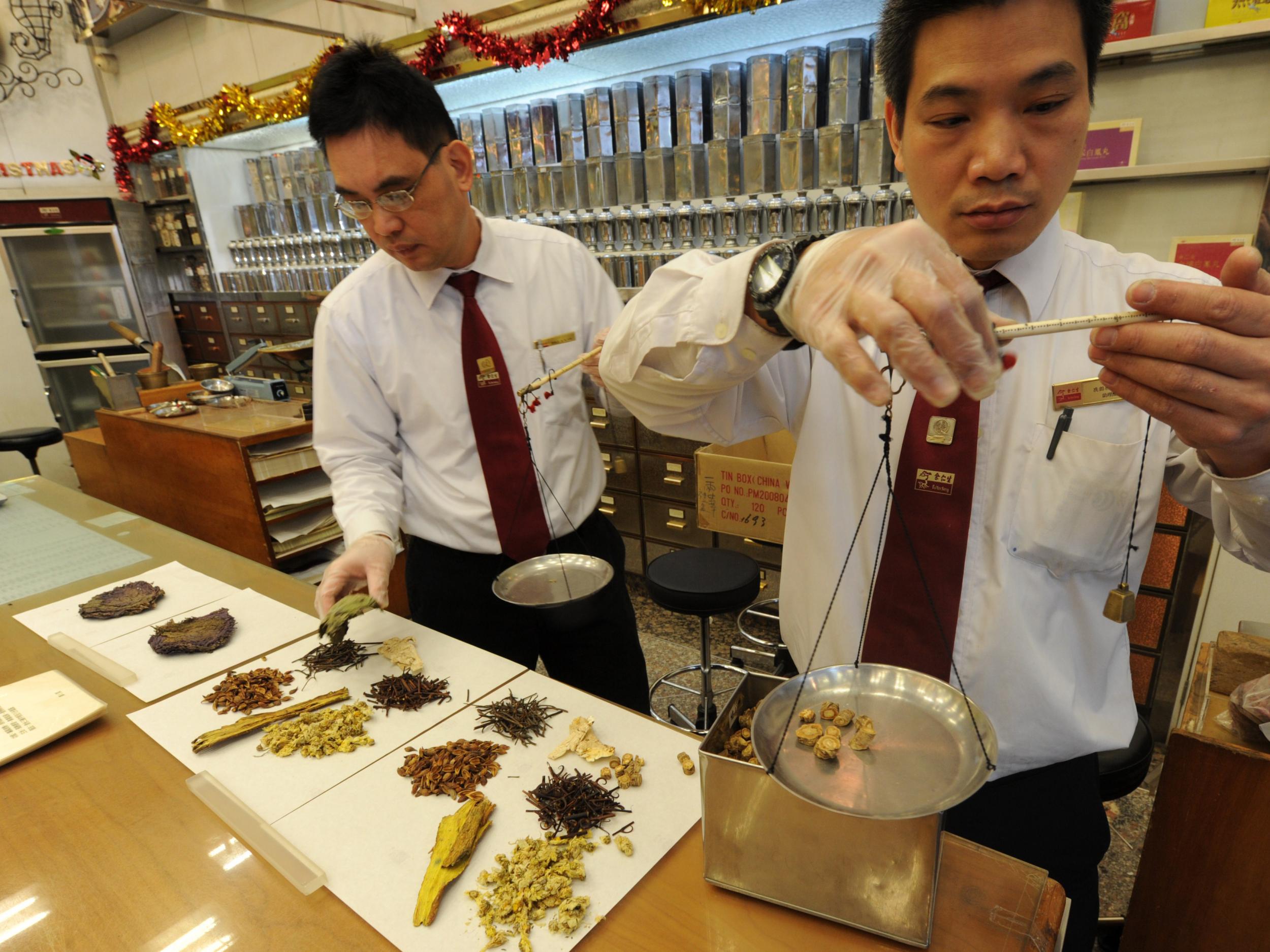China's quest to buy up global supply of donkeys halted by African nations
Donkey hide is used to make Chinese remedy ejiao, believed to improve blood circulation

Your support helps us to tell the story
From reproductive rights to climate change to Big Tech, The Independent is on the ground when the story is developing. Whether it's investigating the financials of Elon Musk's pro-Trump PAC or producing our latest documentary, 'The A Word', which shines a light on the American women fighting for reproductive rights, we know how important it is to parse out the facts from the messaging.
At such a critical moment in US history, we need reporters on the ground. Your donation allows us to keep sending journalists to speak to both sides of the story.
The Independent is trusted by Americans across the entire political spectrum. And unlike many other quality news outlets, we choose not to lock Americans out of our reporting and analysis with paywalls. We believe quality journalism should be available to everyone, paid for by those who can afford it.
Your support makes all the difference.A number of African countries have banned China from buying their donkeys, saying demand for the four-legged creatures has become unsustainable.
Niger announced a ban on the export of donkeys this month after trade of the animals increased by three times in the last year, mainly to Asian countries.
And Burkina Faso has also put a stop to the export of donkey skins, which are boiled to produce gelatin, a key ingredient in the traditional Chinese remedy ejiao – believed to improve blood circulation and cure conditions including dizziness, irregular menstruation and insomnia.
Increased demand for imported donkey skins follows a dramatic drop in China’s donkey population as the country has industrialised.
The number of donkeys in China has fallen from 11 million to six million since the 1990s, according to CNN.
Atte Issa, a Niger government official, told the BBC that around 80,000 donkeys had been exported from the landlocked African country this year compared to 27,000 last year.
“If the export continues the animals will be decimated,” he said.
The average price of a donkey has also increased by around three-fold, according to the broadcaster, and some livestock sellers are switching to donkey breeding as their trade has become so profitable.
“[Ejiao] is quite a popular ingredient in China that people may self-prescribe,” Chinese medicine expert Mazin Al-Khafaji told The Independent. “But there is a shortage, and there are fakes around as it’s very expensive.”
“It’s what we call a blood tonic, so it stops bleeding and strengthens the blood. It’s used for anemia or low blood cell count,” he said.

“It’s a hard gel, made from donkey hide, which is then dissolved in hot water or alcohol. It’s also used topically in a cream, for leg ulcers for instance.”
In Burkina Faso, the country’s reserve of 1.4 million donkeys was being “overexploited” by a boom in trade of their hides, mostly with China, the country’s public health director Adama Maiga told AFP.
Mr Maiga said exports in hides had soared from 1,000 in the first quarter of 2015 to more than 18,000 in the last quarter.
Now all slaughter would have to be done in “officially recognised” abattoirs.
Two Chinese nationals have set up a donkey slaughterhouse in west Kenya, according to the Daily Nation.
The government approved the new abattoir, where around 100 donkeys could be killed a day and exported to China, in April, reported the Kenyan national newspaper.
Earlier this year, Chinese ejaio expert Qin Yunfeng offered an alternative solution to China’s donkey shortage, according to The New York Times.
Mr Qin told a state news agency: “The government should support donkey breeders by offering subsidies to encourage more breeding.
Join our commenting forum
Join thought-provoking conversations, follow other Independent readers and see their replies
Comments